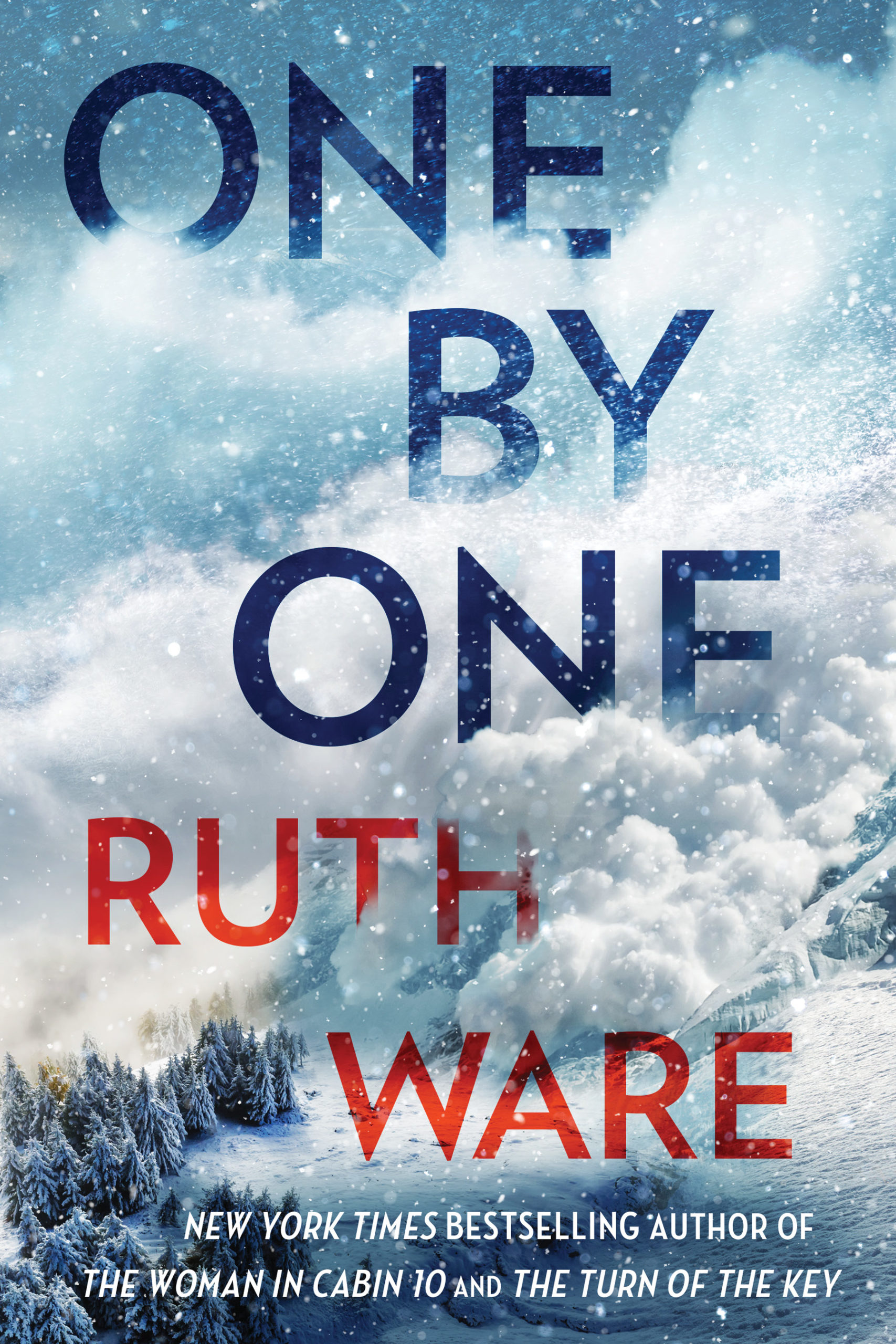Ruth Ware Books: A Deep Dive into Psychological Suspense

Ruth Ware has rapidly become a leading name in psychological suspense, captivating readers with her intricate plots, unreliable narrators, and shocking twists. Her novels, all standalone works, explore the complexities of female relationships, the dark side of human nature, and the unsettling power of secrets. This in-depth exploration delves into each of her books, examining their unique themes, stylistic choices, and lasting impact on the literary landscape. We will analyze Ware’s works in chronological order of publication, but readers are encouraged to explore them in any sequence, as each stands alone.
Ruth Ware’s Literary Style and Themes

Ruth Ware’s writing style is characterized by a compelling blend of classic mystery elements with modern psychological thriller techniques. She expertly builds suspense through atmospheric descriptions, intricate character development, and a gradual unveiling of secrets that keeps readers guessing until the very end. Her narratives frequently employ unreliable narrators, forcing the reader to question the veracity of events and actively participate in piecing together the truth. This enhances the immersive quality of her stories, creating a sense of unease and tension that lingers long after the final page.
A recurring theme in Ware’s work is the exploration of female relationships and the intricate dynamics between women. Her books often feature groups of women who are connected through shared history, often marked by past betrayals, unspoken resentments, or hidden truths. These relationships form the emotional core of the narratives, driving the conflicts and revealing the vulnerabilities of the characters involved. The complexities of these relationships are mirrored in the equally complex plots, enriching the emotional impact of the suspenseful narratives.

Another significant aspect of Ware’s work is the exploration of social class and privilege. Many of her stories are set in upper-middle-class environments, exposing the hypocrisies, hidden tensions, and simmering resentments that often lie beneath a veneer of sophistication. The contrasting lives and perspectives of characters within these settings often fuel the narrative’s conflicts and contribute to the overall suspense.
Furthermore, the settings themselves are often integral to the narratives. Ware masterfully creates immersive atmospheric settings that not only establish the mood but also play an active role in the unfolding plot. The isolated locations frequently chosen – a remote cabin, a luxury cruise ship, a secluded mansion – add to the sense of unease and claustrophobia, amplifying the psychological tension experienced by both the characters and the reader.

A Chronological Exploration of Ruth Ware’s Novels
1. In a Dark, Dark Wood (2015)
Ware’s debut novel, In a Dark, Dark Wood, plunges the reader into a chilling tale centered around a hen party (bachelorette party) gone terribly wrong. Nora, the protagonist, is invited to a weekend getaway with friends she hasn’t seen in years, the twist being that one of her friends is marrying her ex-boyfriend. The idyllic setting of a secluded cabin in the woods quickly unravels as unsettling events unfold, leaving Nora with amnesia and struggling to piece together what happened. The novel establishes Ware’s signature style of atmospheric suspense, unreliable narration, and shocking plot twists that will have readers guessing until the very end. The book also touches upon themes of female friendships, past traumas, and the unpredictable nature of human relationships.
2. The Woman in Cabin 10 (2016)
This critically acclaimed novel shifts the setting to a luxury cruise ship, introducing Lo Blacklock, a travel journalist grappling with recent trauma. During a press trip, Lo believes she witnesses a murder, but no one else seems to have noticed anything amiss. The isolated environment of the ship, coupled with Lo’s own troubled state of mind, creates a palpable sense of tension. The investigation unfolds amidst suspicion and doubt, with every passenger becoming a potential suspect. The book pays homage to classic mystery writers like Agatha Christie, employing a locked-room mystery feel, while maintaining Ware’s distinctive modern suspenseful style. The theme of uncertainty and the fragility of perception are central to the narrative.
3. The Lying Game (2017)
The Lying Game takes a different approach, exploring the long-term consequences of childhood lies and the enduring power of the past. The narrative is centered on a group of boarding school friends who reunite after many years. Their reunion is triggered by a shocking discovery, bringing to the surface past secrets and lies that threaten to unravel their present lives. This book expertly blends past and present timelines, interweaving the events of their adolescence with the unfolding mystery of the present. The focus is on the corrosive nature of secrets and the enduring impact of past choices on adult lives. Themes of female friendship, betrayal, and the struggle to reconcile with the past are central.
4. The Death of Mrs. Westaway (2018)
Ware’s fourth novel, The Death of Mrs. Westaway, is a twisty tale of deception and inheritance. Hal, struggling financially, receives a letter mistakenly addressed to her, informing her of an inheritance from a grandmother she never knew. This sets off a chain of events that takes Hal to a grand Cornish mansion, where she has to maintain the deception while uncovering family secrets. The story seamlessly blends mystery and suspense with elements of gothic fiction, and the isolated setting of the mansion amplifies the suspense. Ware deftly explores themes of identity, deception, and the moral ambiguity of pursuing a better life through dishonest means.
5. The Turn of the Key (2019)
In The Turn of the Key, Ware updates the classic gothic mystery with a modern twist. Rowan, a young nanny, accepts a job in a state-of-the-art “smart” home in the Scottish Highlands. However, her idyllic new life quickly transforms into a nightmare as strange events unfold, leading to a child’s death and Rowan’s imprisonment. The narrative is told through Rowan’s account from prison, where she attempts to explain what truly happened. The novel masterfully employs an unreliable narrator, creating an atmosphere of suspense and uncertainty, and forcing the reader to actively question what they are reading. The story also explores themes of technology’s double-edged sword, the burdens of childcare, and the unreliability of perception, all within the chilling backdrop of a remote Scottish mansion.
6. One by One (2020)
One by One presents a different kind of isolated setting, a luxurious ski chalet in the French Alps, where a corporate retreat for a tech startup takes a dark turn. As a devastating avalanche cuts them off from the outside world, a series of deaths occurs amongst the eight co-workers trapped together. The narrative unfolds through the perspectives of the survivors, each with their own secrets and motives. Ware skillfully builds tension using the confined environment of the chalet and the suspense of survival against the backdrop of the elements. The novel explores themes of corporate greed, ambition, and the hidden tensions within a seemingly successful company.
7. The It Girl (2022)
The It Girl revisits a past crime, examining the long-term ramifications of a wrongful conviction. The story unfolds ten years after the trial of Hannah’s best friend’s murder where Hannah, now a successful lawyer, begins to doubt the accuracy of her testimony. This makes her question what if she made a mistake? The novel showcases the complexities of memory, the burden of guilt, and the unsettling realization that the truth isn’t always what it seems. The isolated environment of the past events allows for a deeper look into the psychological impact of the crime. Themes of female friendships, secrets, and the flaws of justice are explored.
8. One Perfect Couple (2023)
One Perfect Couple delves into the seemingly idyllic life of two couples where appearances deceive. When a scientist, Lyla, accompanies her actor boyfriend to a reality TV show, a game of life or death begins. The novel uses the intense setting of the reality show to unveil the couple’s secrets. This setting heightens the suspense and the emotional drama of the unfolding plot. Themes of deception, hidden motives, and the complexities of human relationships are explored in detail.
9. The Woman in Suite 11 (2024)
The Woman in Suite 11 marks the return of Lo Blacklock, the protagonist from The Woman in Cabin 10. This time, she finds herself in a white-knuckle race across Europe after being asked for help by a desperate woman. The fast-paced plot and the shifting locations create a constant sense of urgency and danger. Lo’s past trauma continues to haunt her, adding depth to the psychological thriller aspect. Trust and betrayal are central themes explored in the intense and exciting narrative.
10. Zero Days (2024)
Zero Days introduces a new protagonist, Jacintha Cross, a security expert whose seemingly perfect life with her husband is shattered when he’s found dead and she becomes the prime suspect. The novel features elements of a crime thriller where she has to go on the run to clear her name and find the real killer. This work offers a fast-paced escape. Themes of marriage, deceit, and the high-stakes world of security are woven into the intricate plot.
Cultural Impact and Legacy
Ruth Ware’s novels have garnered significant critical acclaim and commercial success, achieving numerous bestseller accolades and translations into over 40 languages. Her books have also attracted significant attention from the adaptation industry, translating successfully into film and TV development, reaching a wider audience and cementing her place as a dominant figure in contemporary psychological suspense. Her books have resonated with readers and critics alike, for their compelling narratives, relatable characters, and the exploration of complex themes that continue to shape the literary conversation. The ongoing success of her novels highlights her significant influence on the genre, inspiring a new generation of writers and solidifying her legacy as a master of suspense.
This exploration only scratches the surface of Ruth Ware’s intricate storytelling. Each novel presents a unique puzzle and invites readers to engage deeply with its complex characters and twisting plotlines, solidifying her reputation as a formidable force in the thriller genre. The ongoing popularity and influence of her books attest to the enduring appeal of well-crafted suspense, unreliable narration, and complex explorations of human nature.